Self-defence class over Islamophobia 'normalisation' fear
- Published
"It brings up tears... it is absolutely shocking"
Muslim women in Cardiff have been offered self-defence classes over fears Islamophobia has been "normalised" since Brexit.
Women have reported being shouted at and spat at in the street and new figures show there was a rise in all reported hate crimes after the vote.
A gym in Canton is now offering women-only self-defence classes with a focus on hijab attack prevention.
South Wales Police said hate crime was "never acceptable".
The latest figures from South Wales Police show 2,466 hate crimes were reported to the force in the past 12 months.
This included a spike in July 2016 - the month after the EU referendum vote - but the figures have since fallen.
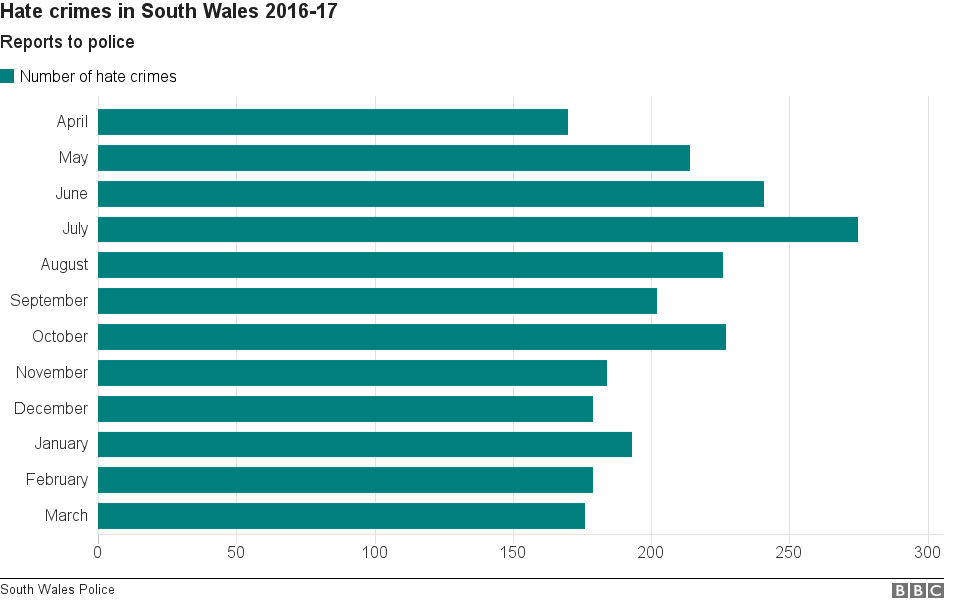
The Muslim Council of Wales claims the figures are the tip of the iceberg and says some women do not report hate crimes because they now consider the abuse a normal part of their lives.
Mohammed Alamgir, director of projects for the organisation, said hijab attacks - where headscarves are pulled - were becoming a problem in the city.
Mr Alamgir said: "For Muslim women it has become a normal part of their lives, to be attacked and belittled.
"A teenage girl was walking in Grangetown and a group of girls started name-calling, they pulled the back of her headscarf and dragged her to the floor.
"That is not acceptable. This is our country, this should not be happening in our city."
Haya Fitness gym in Canton has started self-defence classes after reports of Muslim women feeling too frightened to leave their houses after dark or on match days for fear of attacks.
The classes - open to all women who feel threatened by the increase in hate crime - teach them how to report verbal and physical attacks, as well as evasive manoeuvres if someone grabs them or pulls their headscarf.

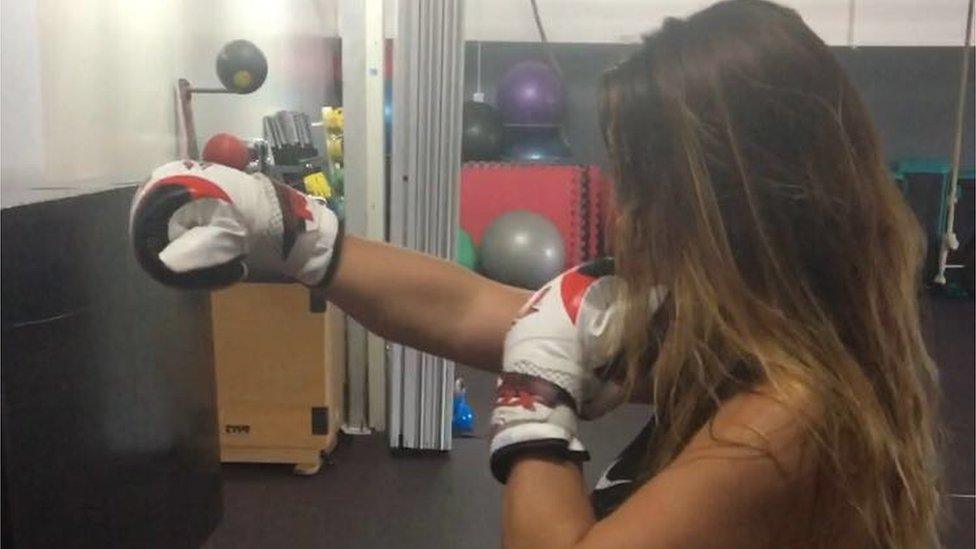
The women are being taught how to evade attacks, including if their headscarves are pulled
One 27-year-old student, who moved to Cardiff with her family from Somalia when she was a teenager, says she is still shaken after being verbally attacked while getting on the bus.
She said the man, who has not been traced by police, ranted about Donald Trump and Brexit, and became more aggressive when challenged.
She got off the bus and waited an hour for the next one to avoid the man.
"It feels like it's normal for this to happen nowadays, but why?" she said. "Who said this is normal and why are we accepting it?"
"It's so scary walking down your own streets: every single time you go to town you look behind you and you're thinking someone's going to be there trying to tell me what they have seen in the news."
She reported the matter to the police but said she knows of other women who are too frightened of repercussions, gossip and nothing being done, to report incidents.
"Do I have to not stay late in the town? Do I have to not feel comfortable in my own headscarf or my own clothes even? It brings up tears... it is absolutely shocking," she said.
"Of course I'm going to report it: it could happen to my mum, my sister, my friend, it could be someone next door, it could be anyone tomorrow."
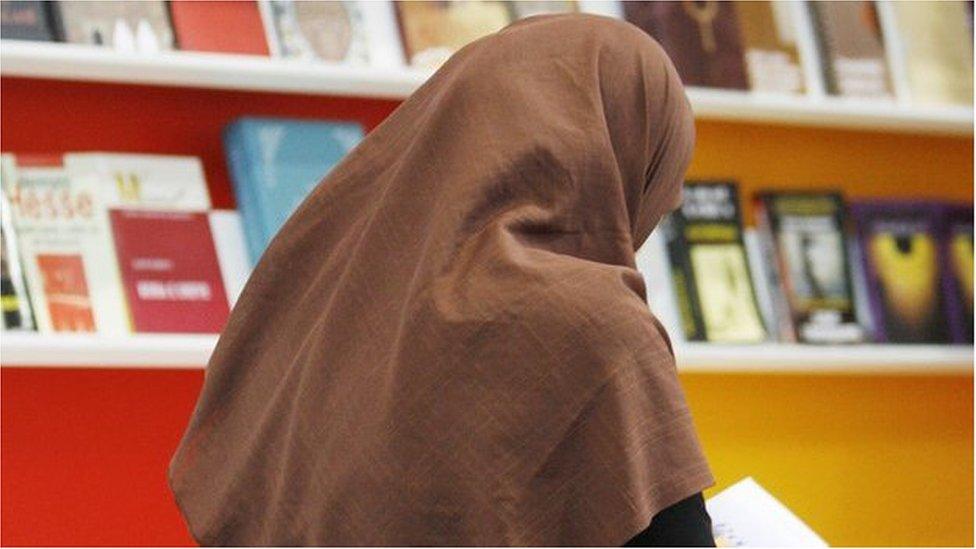
Another 20-year-old student was verbally racially abused as she walked through Caroline Street in the city centre with friends.
At the time she said they laughed it off, but she realises now she should have taken action.
"We get dirty looks all the time, muttering under the breath, it's so normal we don't even think twice about it," she said.
"Even if we were to report it, I don't think anything would be done - I mean how would they catch that person?
"Someone very close to me had alcohol poured on her, but she didn't report this, it was in Cardiff after a match, she had alcohol thrown on her and then racial abuse.
"She didn't report it, she didn't want to, just in case someone else found out and they began talking negatively about her.
"My dad says he doesn't want me going out after a certain time: it shouldn't be like that, we shouldn't have to tell the girls not to go out after a certain time, others should be educated on not harming them."

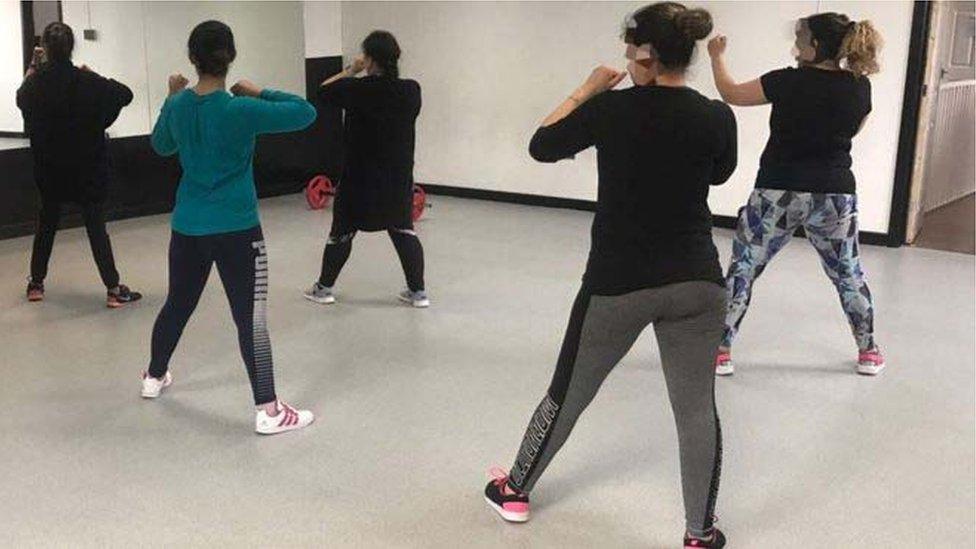
Counselling service Tell MAMA said women were more likely to be targeted by hate crime than men - due to wearing the hijab, abaya or niqab.
According to statistics complied by the service in 2015, 75% of all victims of Islamophobic hate crimes in England and Wales were women.
Director Imam Atta said: "Visible Muslim women are the ones that suffer anti-Muslim hatred and our work has also demonstrated that they are targeted mainly at bus stops, on public transport and at major train station hubs as people come and go from work."
South Wales Police said any kind of hate crime was a criminal offence and "never acceptable".
A spokesman added: "We believe that by taking action against perpetrators, supporting victims, and working in partnership, we can make the lives of those suffering from hate crime safer, protect their families, support the community, and prevent re-victimisation."
- Published15 February 2017

- Published13 October 2015
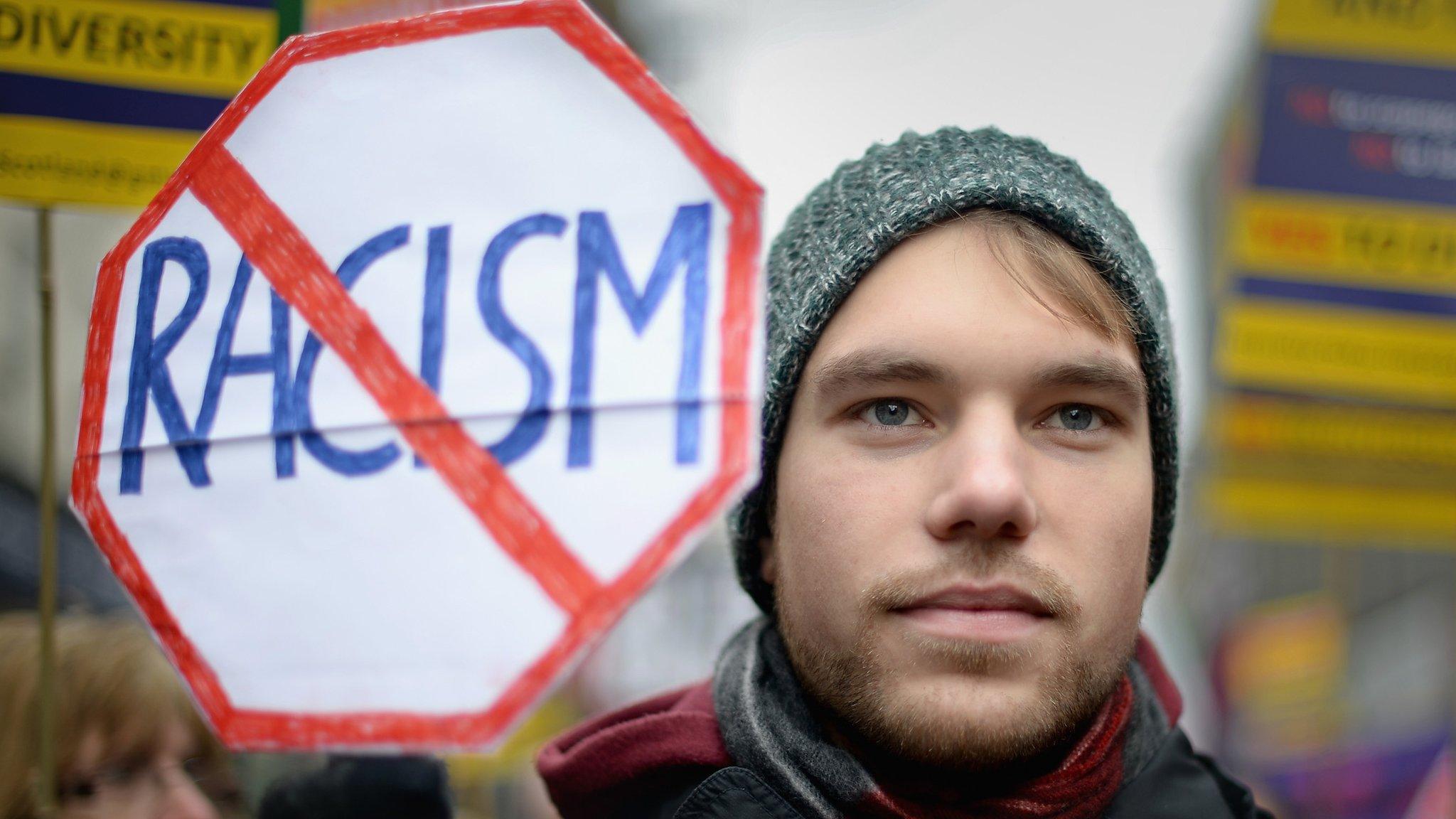
- Published13 October 2015
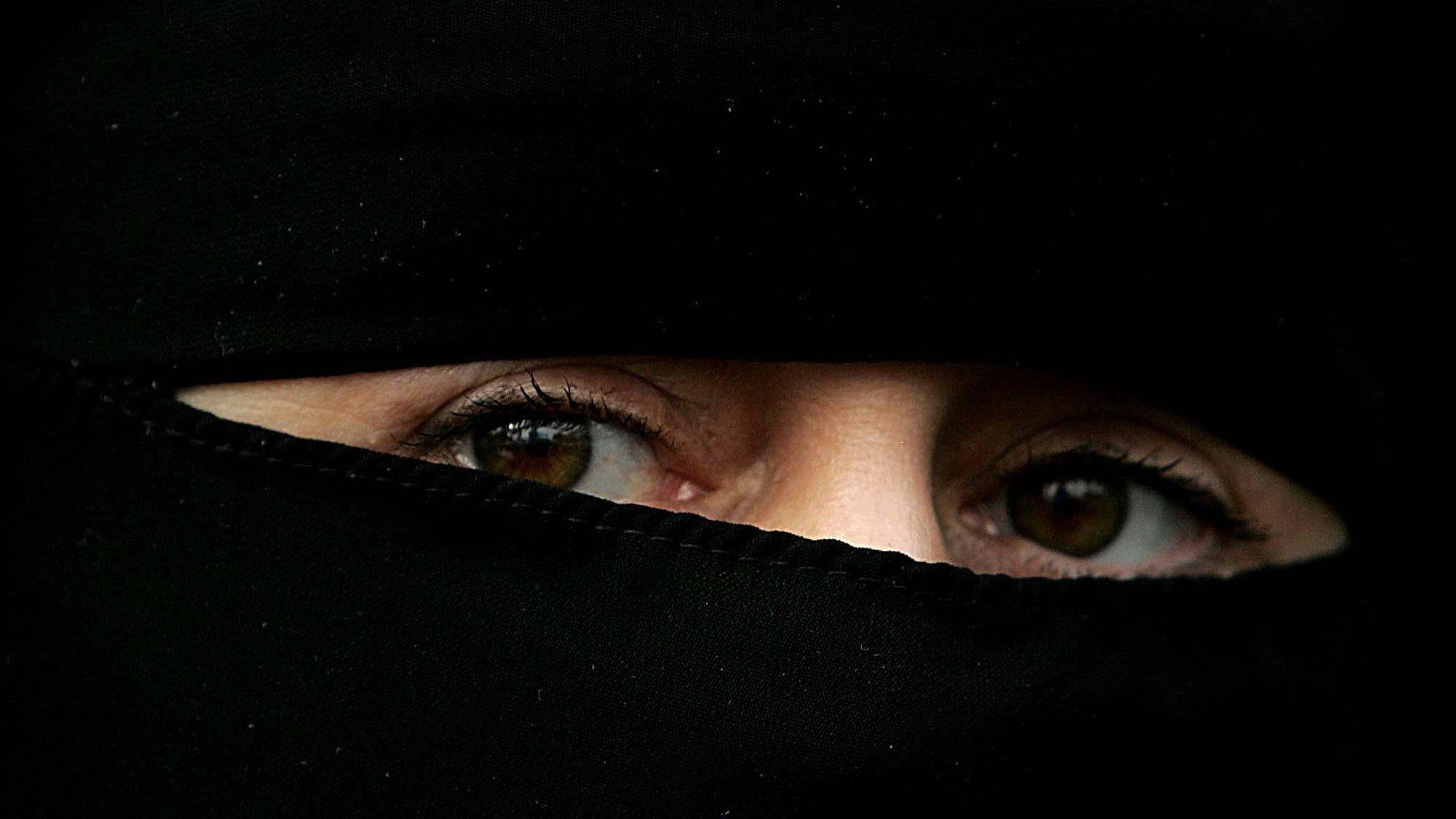
- Published11 November 2015
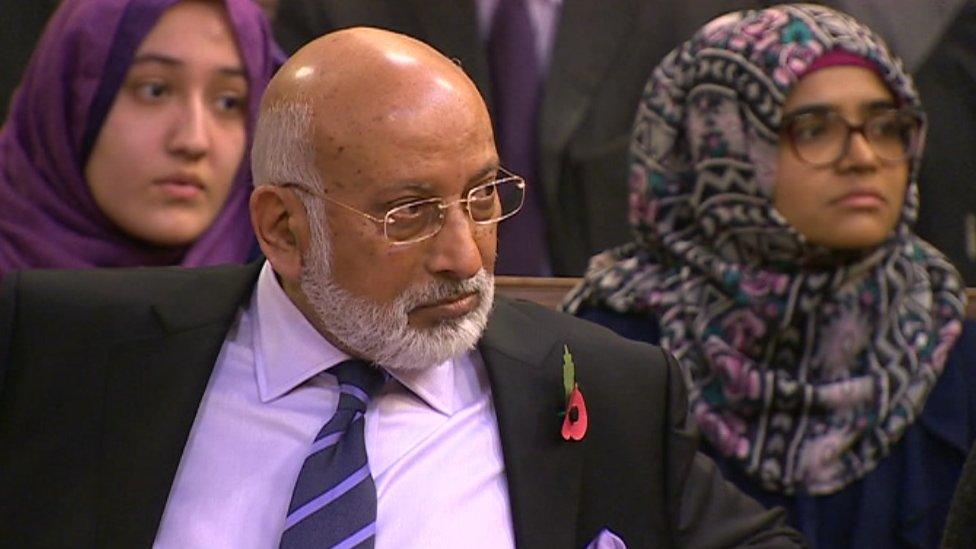
- Published12 May 2014
